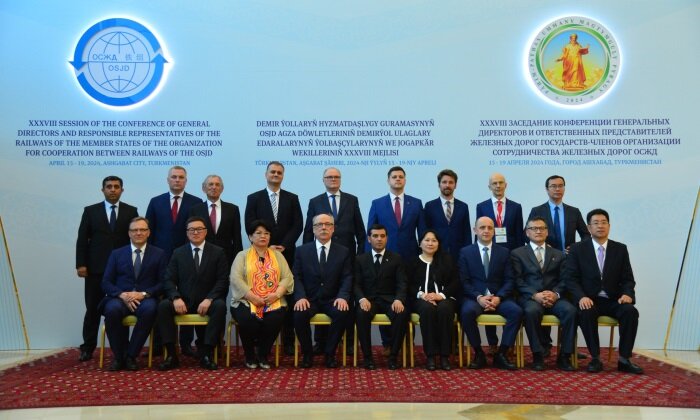The interlocutor of the editorial board explained why it was difficult to find a job in the Republic.
 The unemployment problem got worse in the 1990s in nearly all states of the former USSR. The authorities in some republics were able to take effective measures to create new jobs and reduce labour migration abroad. Until now, the unemployment problem remains acute in Uzbekistan. Experts and statistics speak about it. The authorities recognize the difficult situation as well.
The unemployment problem got worse in the 1990s in nearly all states of the former USSR. The authorities in some republics were able to take effective measures to create new jobs and reduce labour migration abroad. Until now, the unemployment problem remains acute in Uzbekistan. Experts and statistics speak about it. The authorities recognize the difficult situation as well.
It cannot be said that the officials in Uzbekistan are doing nothing to create new jobs. The measures are being taken in the country to build industrial enterprises, develop transport and logistics infrastructures and support start-up businesses. However, something is missing. Thought it seems that real, not paper, work, is being done, hundreds of thousands of citizens are rushing abroad to earn a living, even getting separated from their families.
In late March, Mayor of Tashkent Jahongir Artykhojaev had a meeting with young people. The official promised that joblessness in this category of citizens would be eliminated in the city by September this year. Time will tell whether it will work out or not. Besides Tashkent, there are enough cities and regions where the authorities do not dare to give dates to eradicate unemployment. To have a deeper understanding of this problem, the editor board of CentralAsia.news interviewed an independent expert on Uzbekistan Bahrom Khamroev.
Old problems of modern times
The interlocutor said the joblessness situation in the Republic continued to be traditionally difficult. About 5 million able-bodied citizens cannot find work in their homeland every year.
As a rule, almost every third citizen of Uzbekistan is working in Russia, South Korea, Kazakhstan or Turkey. The expert emphasised that it would be wrong to think that the issue concerned low-skilled labour only. It is also specialists who go abroad: doctors, engineers, scientists and university graduates. In other words, those who, in a normal situation, should build the future of the country.
“Those who belong to the ruling elite of different levels and its servants: all kinds of officials, security officials and other civil servants, a number of workers who develop natural resources of Uzbekistan for the elites, stay in the country. There are also those who do not strive to earn a decent wage or are unable to leave. However, the desire to work for a low by local standards remuneration does not at all guarantee employment without any patronage or money to pay bribes,” Khamroev commented on the situation.
The expert has no doubts that the difficult joblessness situation rests on the traditional post-Soviet problems: the lack of structural reforms and effective development programmes, authoritarianism with nepotism and corruption. He believes that there are no keys to solving these problems.
“We see only a picture of stagnation, somehow corrected by large-scale overseas loans that allowed attracting borrowed funds, which the “Karimov’s” Government did not even dream of. In a normal situation, billions of dollars attracted in loans and foreign financial assistance would have to give impetus to the economy of Uzbekistan, create millions of new jobs and return citizens to their homeland. For example, this was the case with Azerbaijan. However, we are observing nothing of the sort,” the interlocutor said.
Fundamental reforms are the best ‘medicine’
Though the picture is depressing, there is an option to improve the situation. The solutions, according to Khamroev, are large-scale economic, political and social reforms, rejection of authoritarianism, even ’soft’, resolute and uncompromising fight against corruption.
The global crisis caused by the coronavirus pandemic has also a significant negative effect on employment levels in Uzbekistan. It has left a huge number of citizens of Uzbekistan out of work in their homeland. Those, who had worked in Russia or Korea, and found themselves ‘on leave’ in Uzbekistan, suddenly lost their jobs for an indefinite period and with completely vague prospects. The interlocutor emphasised that this situation had been going on for more than a year and was exacerbating social tensions.
“Apparently, this is why a number of loud statements were heard from high-ranking officials, for example, Mayor of Tashkent Jahongir Artykhojaev who said unemployment would be eradicated in the near future. “How the authorities are going to eradicate unemployment in the current circumstances remains unclear,” the expert concluded.






